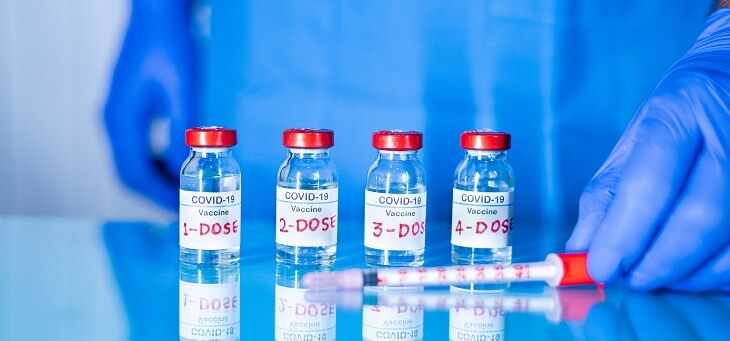A surge in the number of Australians infected with new COVID variants has prompted a vaccination rethink.
Previously, only specific groups were advised to receive a second booster – Australians aged over 65, those with compromised immune systems and anyone with severe illness.
A single booster shot is still considered to give significant protection against severe disease and death, but a wave of infections driven by the newer Omicron subvariants (BA.4 and BA.5) and an increasing number of reinfections has driven a shake-up of the vaccination strategy.
Read: Who is most likely to get long COVID
Now, the Australian Technical Advisory Group on Immunisation (ATAGI) is recommending a second booster shot for over-50s, and anyone over the age of 30 will be able to get a fourth jab if they wish.
Federal health minister Mark Butler says the government has been working on the logistics of extending the fourth dose rollout as the country prepares for a third Omicron wave that is heaping more pressure on the health system.
“It [the third wave] has been in place for a couple of weeks in the eastern states, moving its way westward across South Australia … and WA as well,” he said. “And already we’re seeing big increases in case numbers and, unfortunately, a very big increase in the number of people going to hospital with COVID.”
Read: Wearable device detects COVID before symptoms appear
Almost 71 per cent of the eligible population has received three or more doses of a vaccine and 66.6 per cent of the eligible (over-65) population has received a fourth jab.
However, that means about 40 per cent of Australians aged 65 and over are yet to receive a fourth shot and about 30 per cent of eligible adults are yet to receive their third dose of a vaccine.
Mr Butler said that more than five million people eligible to receive a booster were more than six months overdue.
The number of reported COVID deaths in Australia is set to hit 10,000.
Read: COVID costs and payments that affect your tax
The ages of those in the current wave of infections is older than in the Omicron outbreak experienced over summer – a factor that is contributing to higher hospital admissions.
Pfizer has manufactured a new Omicron-specific vaccine containing only antigens and another with antigens for both Omicron and the original COVID strain.
The Therapeutic Goods Association (TGA) is considering data from Moderna’s Omicron-specific vaccine, after granting a provisional determination for its bivalent vaccine in late April.
University of Queensland Associate Professor Paul Griffin said the downside with those vaccines was that people who had already had a fourth dose may be requested to come back for an Omicron-specific one. “That will require careful messaging,” he said.
Prime Minister Anthony Albanese said on Wednesday that it was important to listen to ATAGI’s advice, but he expected Australia would “inevitably follow what has occurred in other parts of the world and roll out a further booster shot”.
If you enjoy our content, don’t keep it to yourself. Share our free eNews with your friends and encourage them to sign up.


I have noticed many of the ‘jab centres’ near me have shut up shop. Has anyone else? Might be a bit of a wait so best to book early?